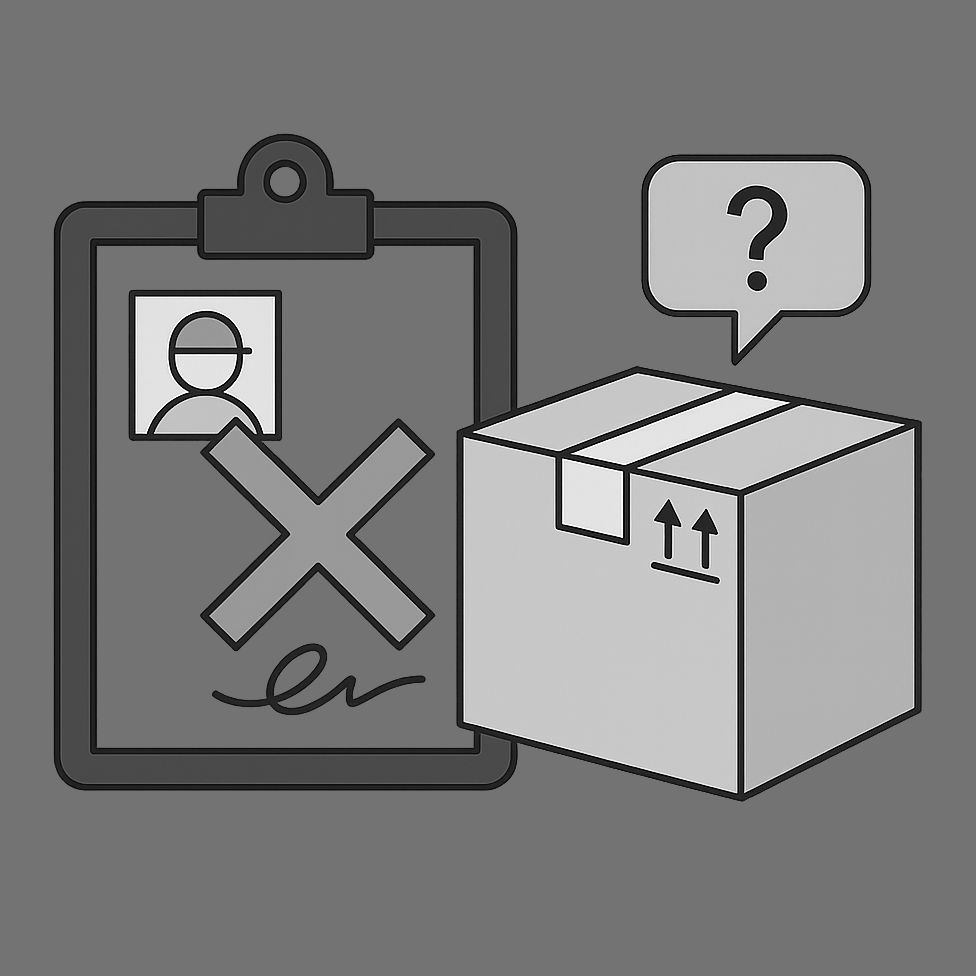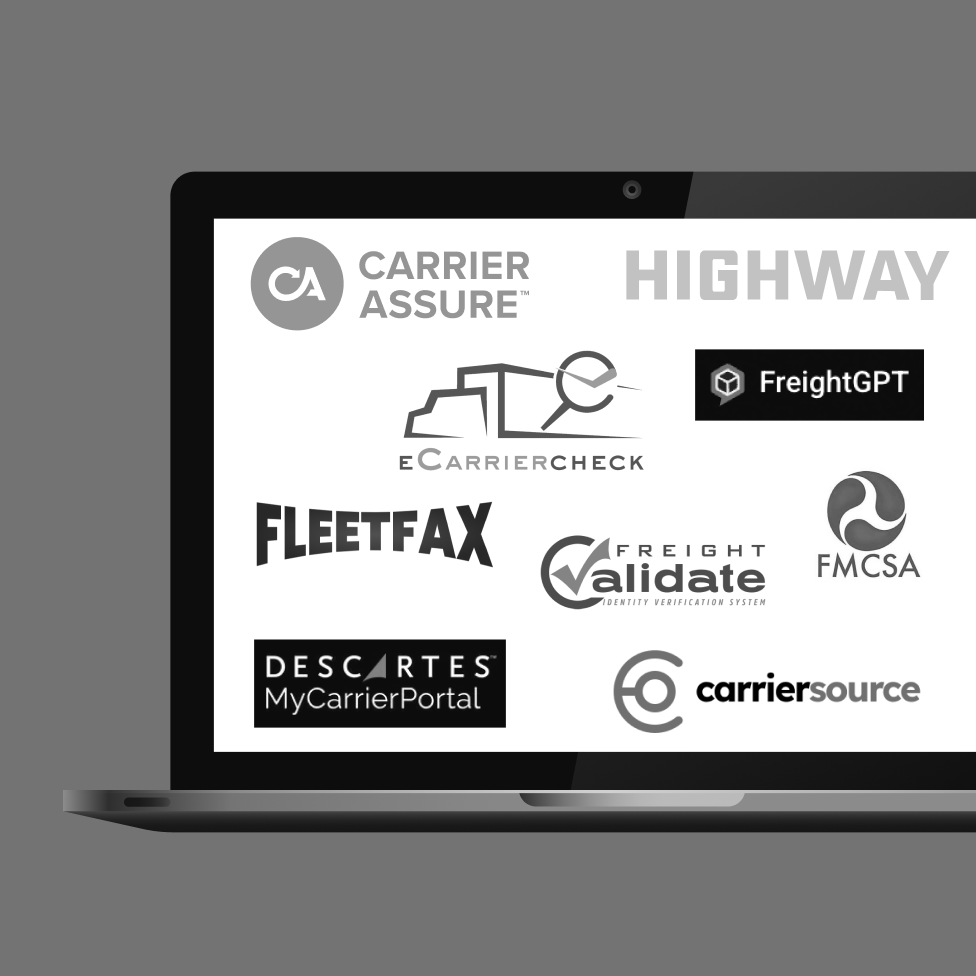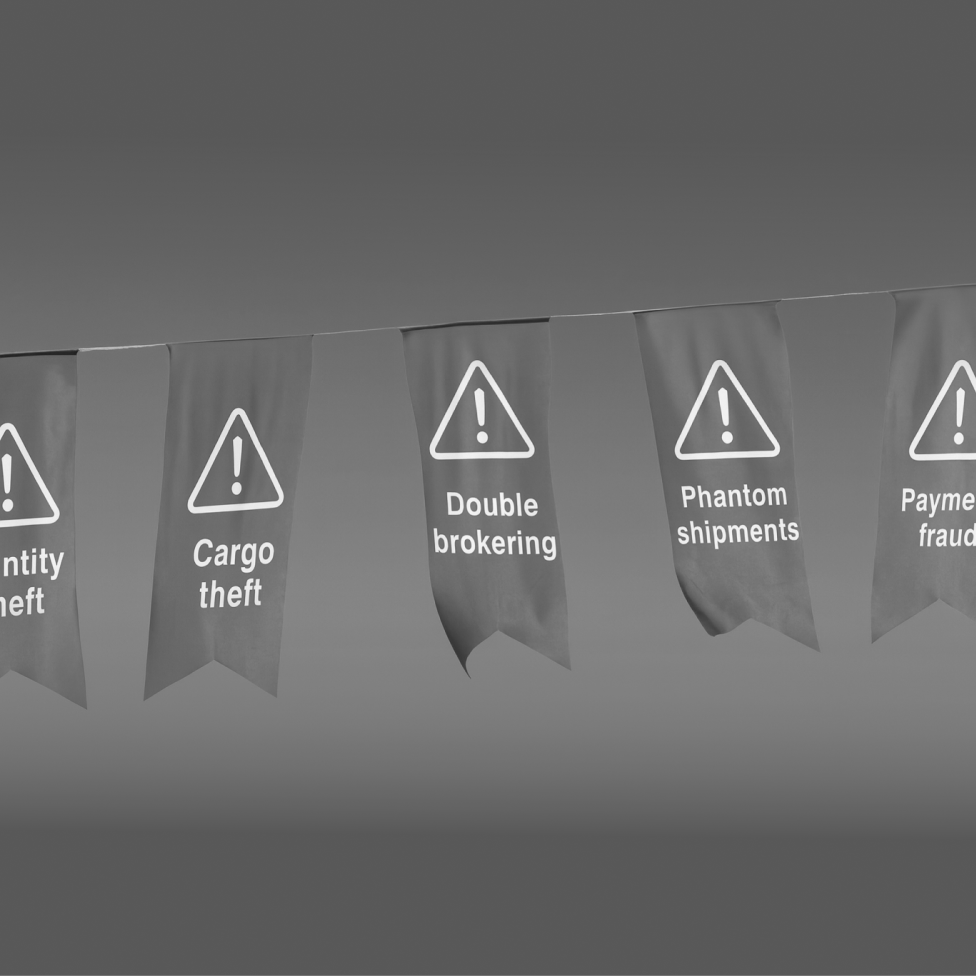Leading a freight and logistics company is risky. Unexpected challenges surface that can be catastrophic. The recent closure of Meadow Lark and Convoy, after 40 years of reliable service, serves as a reminder.
A complex and interrelated economy like ours means the stability of our business partners & stakeholders, especially freight brokerages, can have a ripple effect on our own success. If you're working with a brokerage that suddenly ceases operations, what's the path forward?
Is there a way to safeguard your dues in such situations? Let’s explore this further.
Warning Signs A Business is Going Under
Keeping a close eye on your cash flow is a no-brainer, but fleets often overlook the need to evaluate risk in their business partners
In a tight market, the last thing you’d want is to be caught unaware when the brokerage or shipper that owes you for last week’s loads files for bankruptcy. Abrupt closures cost you business time and resources.
To avoid surprises, keep these things in mind:
- Fluctuating Payment Periods: If your broker's payment periods are trending upwards, such as taking 10 days, then 15 days, then 20 days, and so on over weeks or months, it's a cause for concern. A rising Day of Sales Outstanding (DSO) can indicate potential cash flow problems.
- Frequent Changes in Management: A revolving door at the executive level can signal internal issues.
- Monitor the news: Keep an eye on the news for negative press signals. Look out for news on layoffs, bad funding rounds, or slowing operations.
- Withdrawal from Long-term Contracts: Pulling out of or hesitating to enter long-term commitments is a warning sign of internal changes coming.
- Sudden Downsizing: A quick staff or operational scale reduction may signal a company’s inability to cover salaries.
- Lack of Transparency: If a company is reluctant to share financials or other critical information, proceed cautiously.

Freight Collections After a Bankruptcy
So what if it’s too late and your partner closes down but owes you money? Don't panic. There's a roadmap to recover your dues even after a partner's bankruptcy.
1. File a Claim Against the Broker Bond ASAP.
Freight brokers must have a broker bond (often referred to as a BMC-84) to operate legally. This bond is in place to ensure brokers fulfill their financial obligations to carriers and shippers.
If a broker defaults or goes bankrupt, carriers can file a claim against this bond to recover their dues.
Unfortunately, filing a claim doesn't always guarantee a full payout. The total amount might not cover all claims because there might be multiple claims against the same bond.
2. Reach Out to Shippers Directly.
Directly contacting the shipper is likely the fastest route to recover your dollars.
Look at any documentation you have on the load and see if you can find a direct point of contact at the shipper. If you find a contact, call them ASAP to explain your situation. Be prepared to show the Proof of Delivery, invoice, and rate confirmation.
If you don’t have a personal contact, call the main line and look for the billing department.
Shippers have a vested interest in maintaining operational continuity. They don't want disruptions, and paying carriers is part of that smooth flow.
3. Consider a Collections Agency.
Engaging a professional can sometimes expedite recovery. Collections agencies have the expertise and resources to pursue outstanding payments aggressively. They operate on a commission basis, typically earning a percentage of the collected amount.
If you're uncertain about which agency to work with, reach out for recommendations. Leveraging trusted industry contacts can point you to reputable agencies.
4. Hire a Lawyer and Take the Case to Court.
When the owed amount justifies the investment, legal recourse can be the necessary path. Sometimes, the only remaining option is the court. It's a route that demands time and money. However, with a solid case, carriers frequently find favorable outcomes.
Before pursuing collections and the court system, ensure the amount justifies your time and money investment. Bankruptcy proceedings can be complicated and prolonged. It's not a situation where a passive approach pays off.
Sometimes, it is more profitable to take the financial hit if you have a small amount outstanding. You could make up that cash by investing your time into new business instead of recovering old loads.
However, should you decide to pursue collections, swift action is crucial. The sooner you act, the better positioned you'll be to recover your funds. Remember, multiple creditors might be vying for the same limited pool of resources.
Preventing Collections Headaches
Working with a Factoring Company
Staying on top of warning signs for all your customers and partners is tough. It requires time, due diligence, and regular communication. You may want to consider protecting your business with factoring.
Factoring is a financial solution where companies sell their invoices to a third party (a factor) at a discount. The factor advances the amount owed within days to use to pay for fuel, repairs, and grow your fleet. The factor then assumes the responsibility of collecting the invoice amount from the shipper or brokerage.
If you use a factoring company with a great credit and risk management team, they will act as your risk barometer. A great factoring company will proactively notify you if they think credit is deteriorating for a customer or broker.
Partnering with a factoring company, especially one like Denim, offers several benefits:
- Immediate Cash Flow: Instead of waiting on uncertain payments, especially in precarious economic times, you receive an immediate influx of cash, strengthening your financial position.
- Risk Assessment: A thorough evaluation of the client’s customers is conducted before entering into a factoring agreement. This adds an extra layer of due diligence to help identify risky customers.
- Expertise in Debt Recovery: Factoring companies have experience in collections and may have established procedures for recovering funds from bankrupt entities, giving them an edge in maximizing recovery rates.
- Ongoing Monitoring: Factoring companies often continue to monitor the financial health of both the client and the client’s customers, providing an ongoing risk assessment.
- Business Analytics Dashboard: Tracks key metrics like slowest paying customers and DSO so that you can track the financial health of your business.
By effectively using factoring as a financial tool, businesses can maintain liquidity and gain a valuable partner in assessing and monitoring the financial health of their clients.
Schedule a Demo with Denim to learn how our best-in-class credit risk team can help protect your business from unpaid invoices.
Credit Information to Evaluate Risk

Steve Hunt asked a good question about risk evaluation during our recent podcast episode with The Freight Coach. Whether you rely on a factoring company or take the self-financing route, having the right information is crucial for gauging financial risk.
When partnering with a factoring company, they spearhead gathering the necessary data. However, given that many shippers operate as privately held entities, obtaining comprehensive financial details isn't always straightforward. Many companies aren't extensively profiled on credit reporting platforms such as Experian or other online databases.
To thoroughly assess risk or collaborate effectively with your factoring company to determine a suitable credit line, it's imperative to directly engage with your customer to gather the following details:
1. Company and Contact Information:
- Legal Name, Doing Business As (DBA), and Business Structure*
- Essential contacts, including the CEO, CFO or Controller, Procurement, and Accounts Payable*
2. Banking and Financial Data:
- Bank Name
- Account Number
- Average Monthly Revenue
- Existing Loans or Debts
3. Trade References:
- Supplier Names, Credit Limits, and Payment Terms*
4. Legal Insights:
- History of bankruptcy and ongoing legal proceedings
5. Key Financial Metrics and Documents:
- The most recent audited financial statements, encompassing the Balance Sheet, Income Statement, and Cash Flow Statement
- Tax returns spanning the previous 2-3 years
- Bank statements covering the last 6-12 months
- Vital financial indicators such as the Debt-to-Equity ratio, Current Ratio, and Profit Margin
- Detailed Accounts Receivable and Payable Aging Reports
This checklist is designed to help you seek detailed information from your shippers. While you might not get every piece of data you ask for, simply asking can provide more insights than if you didn't.
However, gathering this information is just the first step. It's crucial to cross-verify these data points with reputable credit bureaus such as Ansonia, Equifax, Experian, or Moody’s.
Having such detailed data at your fingertips allows you to make well-informed decisions regarding financial risks. It also provides your factoring partner with the insights needed to swiftly approve essential credit limits.
Navigating Bankruptcies with Speed and Diligence
Operating in a landscape of financial intricacies demands vigilance and proactive planning. When business partners face financial troubles, it's vital for you to quickly identify red flags and be equipped with tactics to recover due amounts.
However, simply reacting to challenges isn't enough. Proactive financial solutions, like factoring, are pivotal in ensuring stability.
By utilizing such avenues, logistics companies can unlock immediate cash flow, eliminating the often prolonged wait and unpredictability of payments. Teaming up with a financial partner like Denim adds another layer of assurance. With features like ongoing credit monitoring and collections services, you are better equipped to weather the current freight market.
Disclaimer: The contents of this article should not be construed as legal advice or a legal opinion on any specific facts or circumstances. The contents are intended for general informational purposes only, and you are urged to consult with counsel concerning your situation and specific legal questions.

Don’t get blindsided by inadequate credit limits. Collaborate with your factoring company to accurately assess your shippers' risk using our essential checklist.
Denim’s automated solutions streamline your back-office operations. Explore our solutions to see how Denim can help your business scale efficiently.
There's a better way


.png)




